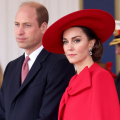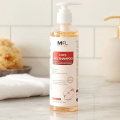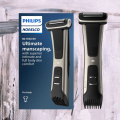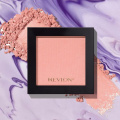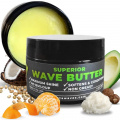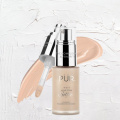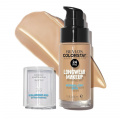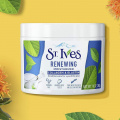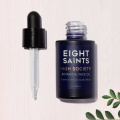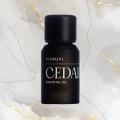Is Sweat Good for Your Hair: Tips to Prevent Sweaty Hair
Is sweat good for your hair growth? Explore the science-backed facts to know if it's actually beneficial for your hair or if it leads to potential issues.
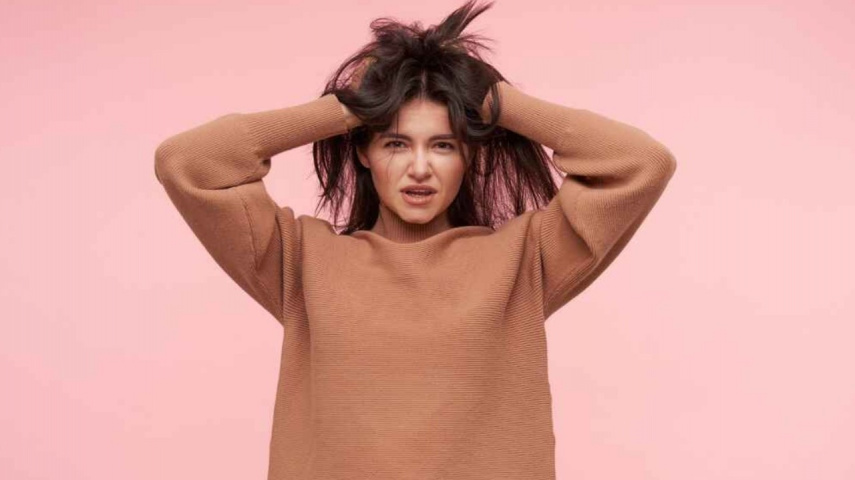
Many of us wonder about the effects of scalp sweating on our hair follicles – Is sweat good for your hair or hinders its growth? In most cases, excessive sweating can happen due to various reasons like hot weather, vigorous activities, or prolonged sun exposure. Some individuals might experience excessive sweating due to overactive sweat glands - Hyperhidrosis. If you're dealing with this on your scalp, chances are other areas like your forehead, and neck are also affected. This can become quite bothersome, especially for your hair and scalp. So here are some tips to help you manage it effectively.
Is Sweat Good for Your Hair - The Pros And Cons of Sweaty Hair

Our sweat glands come in two types: eccrine sweat glands found all over the body, producing light and odorless sweat; and apocrine sweat glands, mainly in hair follicles of areas like the scalp, armpits, and groin (1). These release a thicker sweat with fats, leading to a distinctive odor when mixed with skin bacteria - commonly known as body odor. While sweat has its benefits, it can also have downsides, especially for our hair. Let's explore the pros and cons of sweaty hair here.
Why Is Sweat Good for You? - Pros
Sweating might actually play a positive role in taking care of your natural hair.
- Whether sweat is good or bad for your hair shaft depends on a few factors. If your hair is generally healthy, sweat won't harm it; in fact, it can be beneficial for keeping your scalp and hair well-hydrated.
- Since sweat glands on your scalp are closely connected to your hair follicles, sweating can potentially open up your scalp pores, releasing any buildup and allowing the natural oils produced by your scalp to nourish your hair.
Hence, under the right conditions, a good sweat could become your scalp's ally.
Does Sweating Make Your Hair Grow?
Hair loss is a concern for many, especially as we age. It's often seen more in people who are less active. It's worth knowing that when you do proper fitness workouts, your whole body gets stronger, including your skin and hair.
Likewise, sweating is your body's way of controlling its temperature. When you're hot, your body releases water and sodium through sweat glands to cool you down. Whether it's warm weather, exercise, or a fever, sweating is a vital process to keep your body working properly (1).
However, despite its benefits, there's no solid scientific proof that sweating, whether due to physical activity or heat, leads to thicker hair growth, maintains hair health, or prevents problems like male pattern baldness (2).
Is Sweat Bad for Hair? - Cons
However, just because sweat has some health benefits doesn't mean it's entirely harmless. It can be problematic for individuals with specific scalp conditions or hair types.
- If you have scalp issues like dandruff, eczema, or psoriasis, sweat could exacerbate these conditions. Typically, sebaceous glands produce oil, and sweat glands release minerals, working together to provide a nutrient-rich habitat for microbes (3). This also applies to flakiness, dryness, and other bacterial or fungal infections. Also, if your scalp is already troubled, sweating hair might worsen the situation.
- The effects of sweat on your hair also depend on your hair type. For those with oily hair, sweat can help remove some excess oil. Yet, if your hair is naturally dry, sweat can strip it of its moisture, possibly leading to breakage.
- Additionally, sweat isn't great for colored hair. Though sweat is 99% water, it may also contain metabolites like lactate, ammonia, and urea, as well as salt (4). As this sweat evaporates, it leaves behind a layer of salt that can damage colored hair. That's why many curly hair people avoid sweaty workouts as they fear the salt build-up will damage their coily hair more.
- If sweat drips down your hair while working out, it can lead to breakage, especially if your hair is in a hairstyle that's prone to damage, like a tight bun or high ponytail.
Before you decide if is sweat good for your hair and avoid getting a sweaty scalp altogether, remember that sweating is a natural body process primarily consisting of water. Sweat on its own doesn't harm your hair. However, allowing your sweaty hair to dry without proper care can clog scalp pores, making it more susceptible to infections.
Tips to Take Care of Sweaty Hair
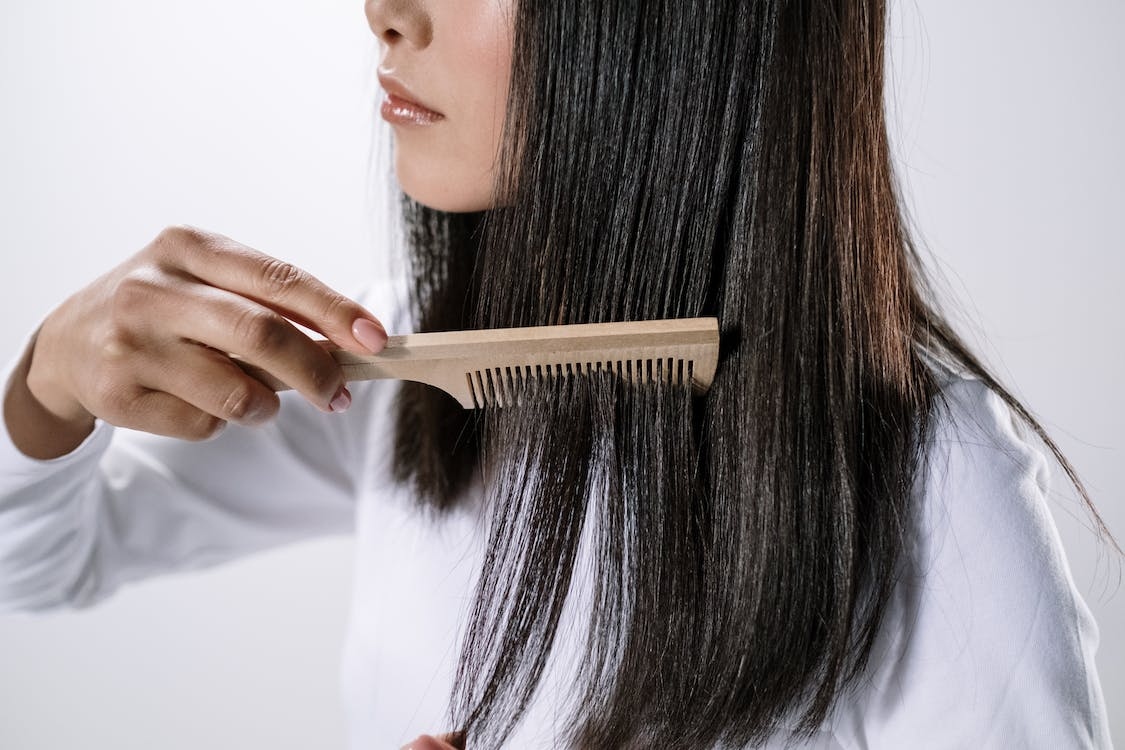
Excessive sweating can be quite a headache, especially for your hair. It can mess up your hairstyle, give your scalp a shiny and oily appearance, and leave your hair feeling dirty. But don't let the fear of sweat damage keep you from enjoying your daily activities. Here are some simple yet effective tips to shield your hair and scalp from the impacts of sweat.
Workout Bands
During workouts or any sweaty activities, consider using a cotton headband. This can help soak up the sweat and prevent it from accumulating on your scalp.
Hair Styles
Tight hairstyles or ponytails can trap sweat, dirt, and oil, potentially leading to hair loss (5). Opt for looser hairstyles that allow better airflow and minimize the risk of hair breakage. If you still prefer tying your hair, opt for gentler options like clips or fabric-covered hair ties to reduce breakage.
Dry Shampoos
Using a dry shampoo is a fantastic way to shield your hair from possible sweat damage without messing up your regular wash routine. So when it's time for wash day, go for products specially formulated to maintain hair and scalp health.
Microfiber Towels
If you're skipping a hair wash after sweating, use soft hair-drying towels to wipe away sweat. This helps prevent greasy and wet hair. Microfiber towels are especially useful as they are lightweight and efficiently absorb moisture from your hair. They're quicker and more convenient than using alternatives like a t-shirt hair wrap for drying your hair.
Brushing
Regularly brushing your hair isn't just about keeping it neat; it can also help combat sweat-related issues. Brushing stimulates blood circulation in the scalp and can contribute to preventing hair loss by promoting healthy hair follicles and better circulation.
Tips to Take Care of Sweaty Scalp

Excessive sweating on your scalp can pose challenges to your hair's health. Sweat has the tendency to dry out your scalp and hinder new hair growth. Additionally, allowing sweat and dirt to accumulate on your scalp can clog hair follicles, resulting in an itchy scalp as skin cells accumulate (6). Now that you're aware of the downsides of excessive scalp sweating, here are some ways to counteract it.
Hair Wash
After a workout, it's important to wash your hair promptly to prevent potential damage from sweat. The best way to care for your hair when it's sweaty is to rinse it as soon as possible after exercise. But try to avoid excessive washing and if daily washing is necessary go for gentle opaque. You can follow it with a conditioner to restore lost moisture (7). If time permits, consider a quick rinse with cool water before shampooing to seal the hair's cuticle and prevent damage.
Scalp Massage with Oil
Massaging your scalp with oil enhances blood circulation to hair follicles and ensures thorough nourishment while removing dirt and toxins. This method, apart from regular shampooing, is an effective way to reduce hair loss due to sweating (8).
Apple Cider Vinegar
Apple cider vinegar helps restore your scalp's pH balance and can regulate sweat secretion (9). Simply mix a few tablespoons of ACV with warm water, massage it into your scalp, leave it on for around 30 minutes, and then wash it off.
Stay Hydrated
Staying hydrated by drinking water assists your body in staying cool and sweating less. Additionally, it aids in replenishing lost water content due to excessive sweating. Aim to consume ample water throughout the day for optimal hydration.
Sweating is a natural bodily process, but that doesn't mean it should negatively impact your hair health. By following these practices, you can help keep your hair and scalp in great condition, even during sweaty moments.
Ways to Prevent Hair Loss from Sweating

While sweating is a natural way for our body to get rid of toxins, too much of it can actually harm your scalp and hair. This is mainly because of the lactic acid present in sweat, which, when mixed with the hair's keratin, can lead to hair damage and hair loss. So, if you've ever noticed hair fall after sweating, this could be a reason.
Sweating, especially after a workout, releases DHT that can negatively impact hair follicles and their growth (10). Additionally, a sweaty scalp can become itchy and irritating, tempting you to scratch, which can result in hair weakening and fall.
However, not everyone experiences excessive hair fall due to sweating. It often happens when proper care of hair and scalp is lacking. Maintaining scalp clean and nourished by oiling regularly, and choosing appropriate hair accessories and products for the gym can help prevent excessive hair fall.
If your head sweating is due to an underlying medical issue, seeking medical professionals for suitable treatment is crucial. Besides regular exercise, other factors can contribute to excessive scalp sweating are
- Stress, and anxiety
- Anger
- Heat or hot weather
- Prescription drugs such as thyroid medication
- Spicy food
- Hormonal imbalance
Here are some extra tips to help you prevent hair fall:
Manage Stress
Stress can trigger excessive scalp sweats (11). Trying relaxation techniques like meditation or deep breathing can help reduce stress levels, which in turn can lower the likelihood of excess sweat and improve overall health.
Hair-Healthy Diet
A balanced diet rich in protein is essential for healthy hair growth, as hair follicles are primarily made of protein. Lack of protein intake has been linked to hair loss, brittle hair as well as hair thinning. Biotin, another crucial nutrient, is vital for producing hair protein called keratin. Including biotin supplements in your routine can support hair growth (12).
By understanding the relationship between excessive sweat and hair health, you can take steps to keep your hair strong and vibrant even during sweaty activities.
Conclusion
So now you know the answer to is sweat is good for your hair or not! Sweat is actually a natural way for your body to keep your hair and skin healthy. So, don't worry about hitting the gym or going for that run. But remember, after sweating it out, it's important to wash your hair and maintain it to prevent any build-up. However, there are other factors that can also contribute to hair loss like dandruff, genetics, medications, and environmental factors. Hence focus on maintaining a balanced diet, staying hydrated, and managing stress to prevent hair fall.
ALSO READ: How to Stop Hair Fall Naturally And Get Luscious Tresses





 JOIN OUR WHATSAPP CHANNEL
JOIN OUR WHATSAPP CHANNEL




